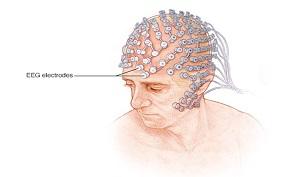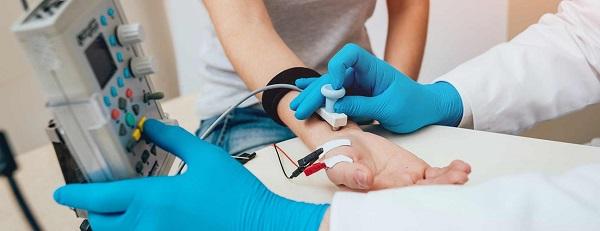- +91-94612 06565
- pulseappointment@gmail.com
- NH-8, Opp. RTM Hotel, Kotputli, Rajasthan
Department of Neurology
Best Neurologist in Kotputli, Rajasthan
If you are looking for the Best Neurologist in Kotputli, you must visit Pulse superspeciality hospital because it is the right place for your treatment. Neurosurgery is the department of medicine that deals with the surgical intervention of the nervous system. The nervous system is a combination of the central and peripheral nervous systems. The brain and the spinal cord incorporate the central nervous system. The peripheral nervous system is controlled by the nerves and sensory receptors, organs such as the ears, eyes, skin, etc.
Brain surgery is required to repair structural problems in the brain. Brain problems occur due to congenital disabilities, ailments, injuries, and other issues. The conditions that need neurosurgery are listed below:
– Aneurysms
– Epilepsy
– Blood clots
– Parkinson’s disease
– Stroke
– Brain tumours
– Nerve damage
Types of Neurosurgery
Neurosurgery can be broadly classified into:
Symptoms of Neurological Conditions
However, each individual may experience symptoms differently. The most common signs and symptoms of a nervous system disorder are as follows:
– Sudden onset of a headache
– Headache that changes or is different
– Unable to feel or tingling
– Weakness in the muscle
– Sight loss or double vision
– Memory loss
– Impaired mental ability
– Inadequate coordination
– Rigid muscles
– Tremors and seizures
– Back pain that spreads to the feet, toes, or other parts of the body
– Slurred speech
– New language impairment (expression or comprehension)
1. Imaging
Advanced imaging techniques can be obtained to study images of the tissues of the body clearly and closely. The technique is used for these treatment:
– Computed Tomography (CT-Scan)
– Magnetic Resonance Imaging (MRI)
– Functional MRI (fMRI)
– Positron Emission Tomography (PET
– Single Photon Emission Computed Tomography (SPECT)

2. Blood And Urine Tests
A urinalysis is used to check blood in urine to check your general health and any other kind of infection in our body related to kidneys, liver and others. Four tests come under the urine test:-
- Red blood cell Urine test
- Glucose urine test
- Protein urine test
- Urine ph level test.

3. Electroencephalogram (EEG)
The nervous system is studied with the help of electrical patterns that are generated in ECG. An EEG test involves the placement of electrodes on the scalp that are studied and readings are generated of the electrical patterns. EEGs are also a test that confirms brain death.

4. Electromyogram (EMG)
EMG test includes electrodes that are placed so as to detect the transmission of electrical signals and the communication between the nerve and the muscle it controls.

Diagnosis & Neurologist in Kotputli
Most of the diagnostic tests are conducted by the neurologist, as we see neuro specialist doctors may suggest some tests to understand the condition more closely and ensure the need for neurosurgery. More detailed tests may be carried out to analyse the problem more closely.
Some of the most commonly prescribed tests for neurological ailments are listed below:
Treatment & Preventions
Neurosurgeons examine the need for surgery through diagnoses and afterwards recommend surgery for the brain. There are several brain surgeries a neurosurgeon performs, such as:
- Craniotomy (A craniotomy is the surgical removal of part of the bone from the skull to expose the brain. Specialised tools are used to remove the section of bone called the bone flap. The bone flap is temporarily removed, then replaced after the brain surgery has been done.)
- Biopsy (A biopsy is a procedure to remove a piece of tissue or a sample of cells from your body so that it can be analysed in a laboratory. If you’re experiencing certain signs and symptoms or if your doctor has identified an area of concern, you may undergo a biopsy to determine whether you have cancer or some other condition.)
- Minimally invasive endonasal endoscopic (Endoscopic endonasal surgery is a minimally invasive technique that allows a surgeon to go through the nose to operate on areas at the front of the brain and the top of the spine.A thin tube called an endoscope is thread through your nose and sinuses)
- Minimally invasive Neuroendoscopy ( is a minimally-invasive surgical procedure in which the neurosurgeon removes the tumour through small holes (about the size of a dime) in the skull or through the mouth or nose.)
- Deep brain stimulation (is an elective surgical procedure in which electrodes are implanted into certain brain areas. These electrodes, or leads, generate electrical impulses that control abnormal brain activity. The electrical impulses can also adjust for the chemical imbalances within the brain that cause various conditions. Stimulation of brain areas is controlled by a programmable generator that is placed under the skin in the upper chest.)
Just after the brain surgery is completed, surgeons monitor the patient to see if everything is working fine or not. The stay time in the hospital can last up to a week. However, the stay is dependent on the type of procedure carried upon you. Doctors may prescribe you to take medications for some time after the surgery.
Conclusion
Pulsе Hospital in Kotputli, Rajasthan, is a beacon of hopе and еxcеllеncе in Neurology hеalthcarе. With a dedicated team of experts, modеrn facilitiеs, and a patiеnt-cеntrеd approach, wе оvеr thе bеst possible cure for common Neurology problеms and morе. Whеn you choosе Pulsе Hospital, you’re choosing the highest healthcare standards in thе region. Visit Pulse Hospitals if you face Neurology symptoms where experts will provide you with second advice as per your health needs and make a treatment plan to cure it, so no problems arise in the long- term.
